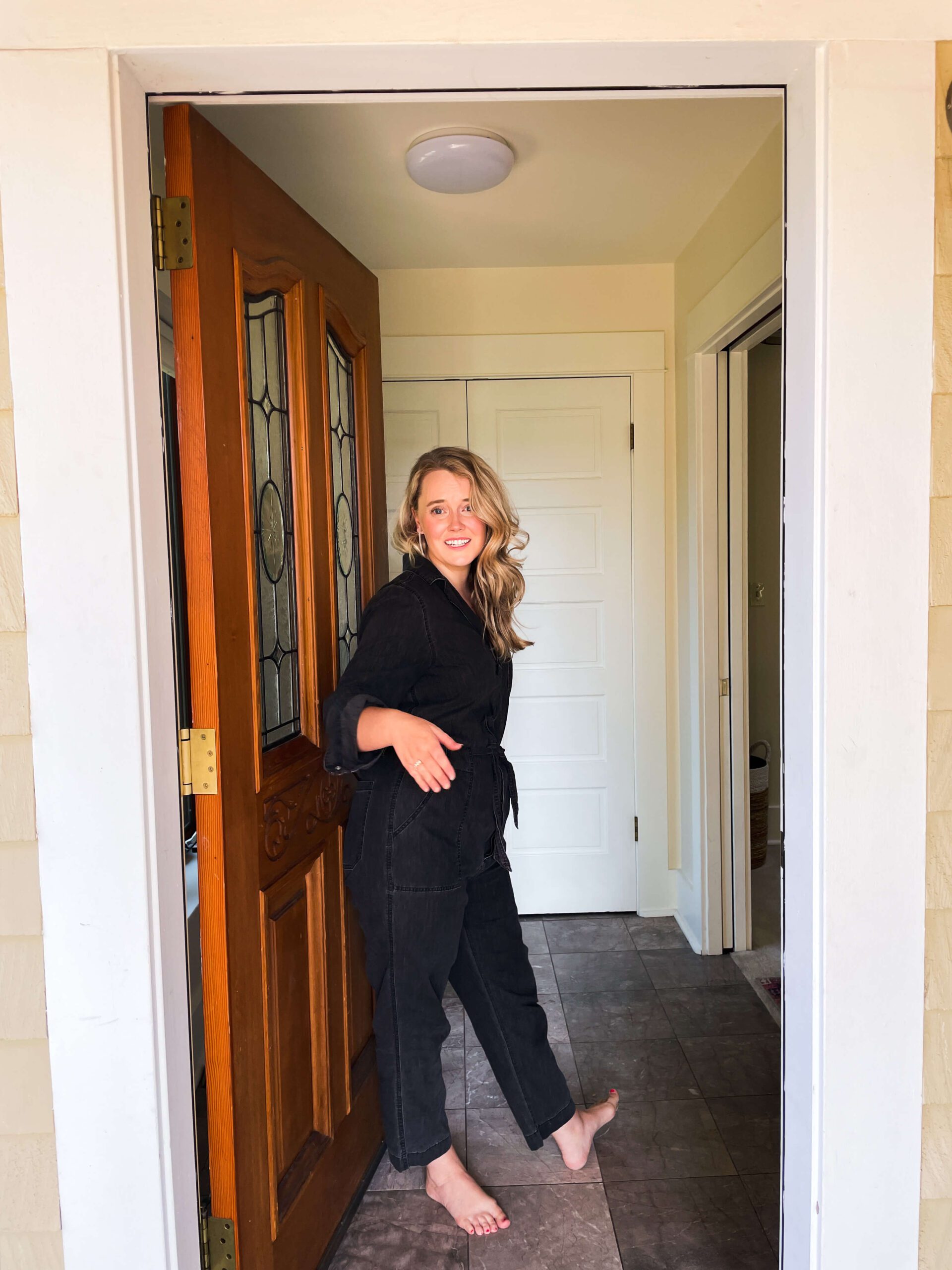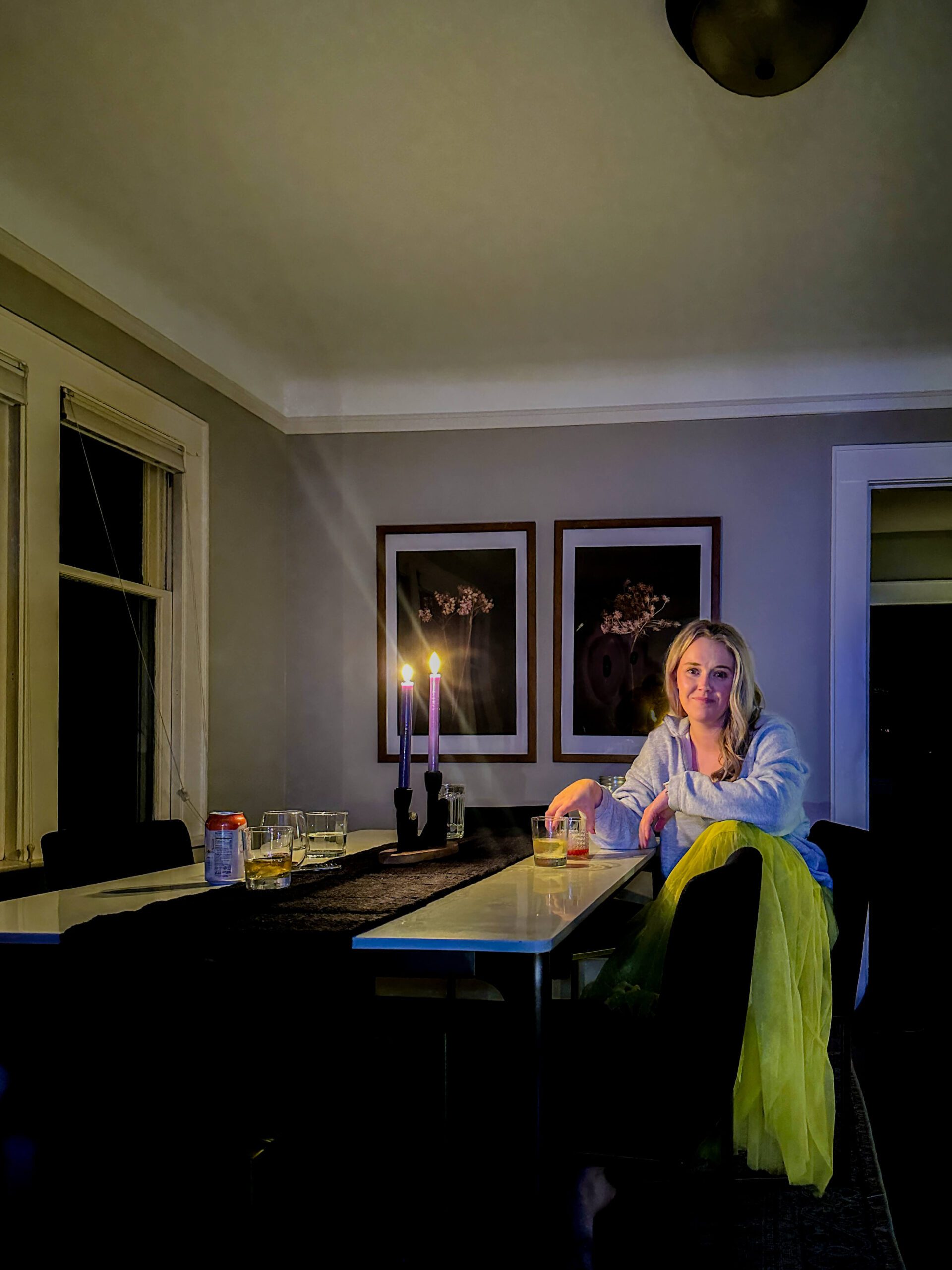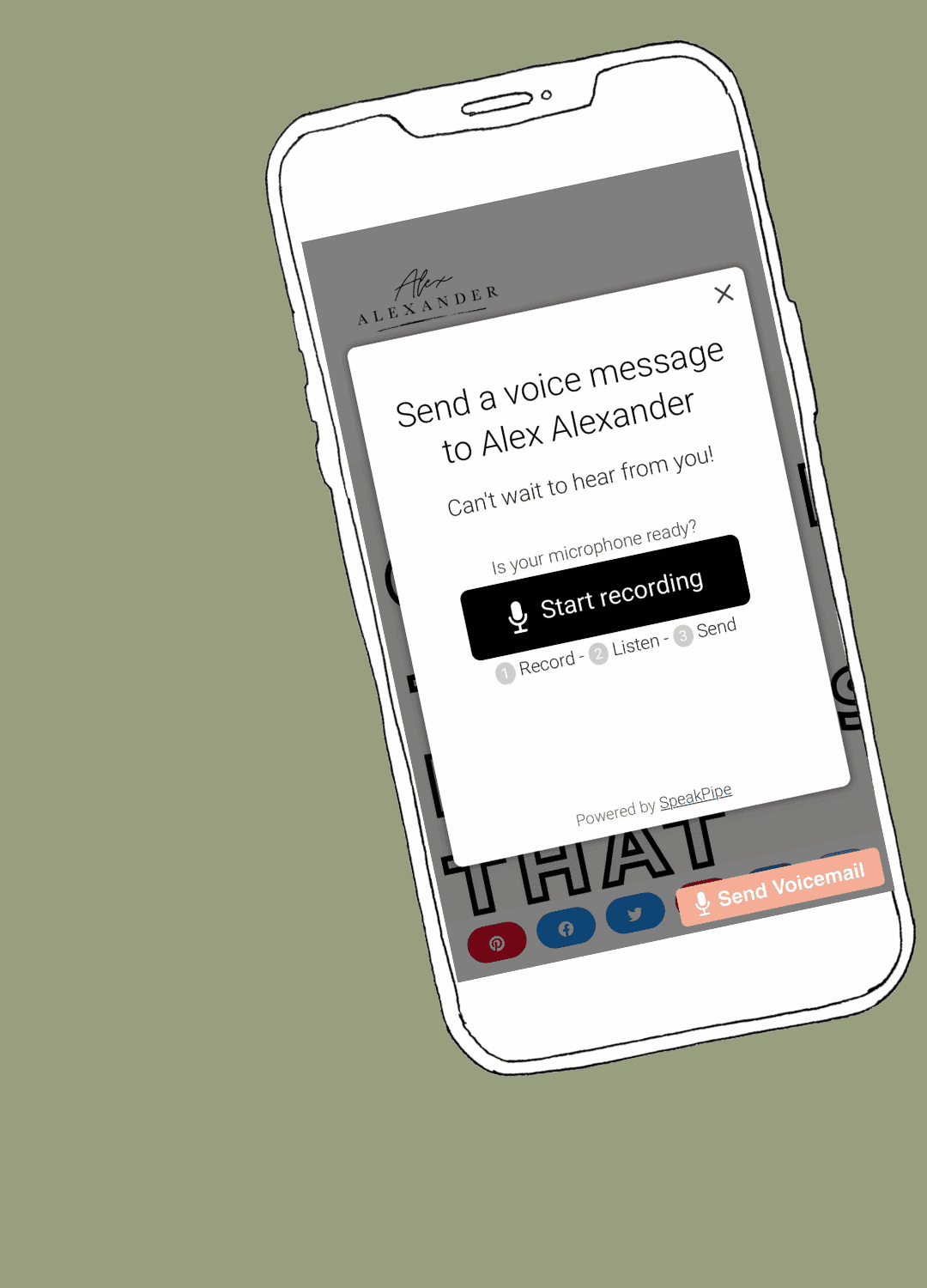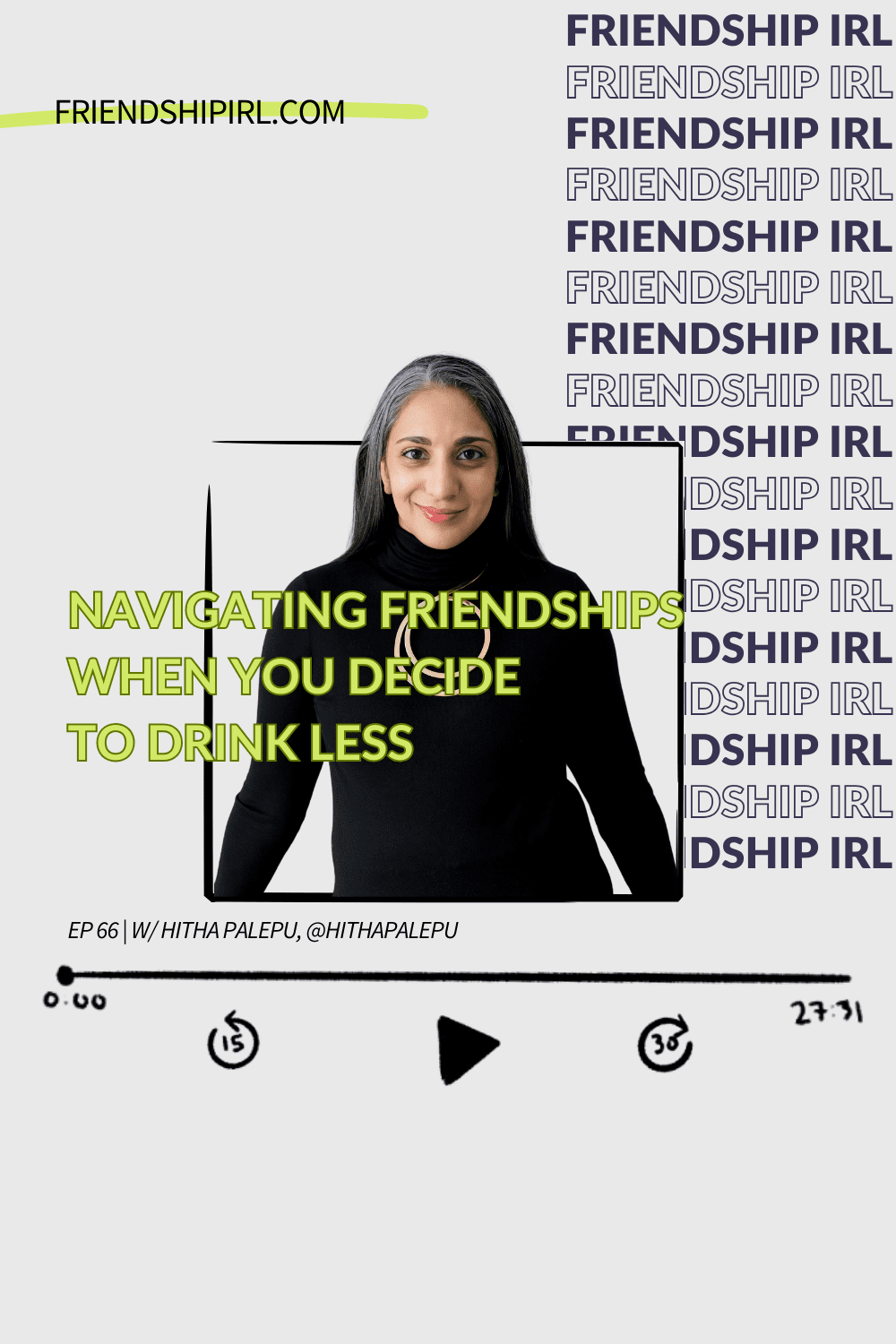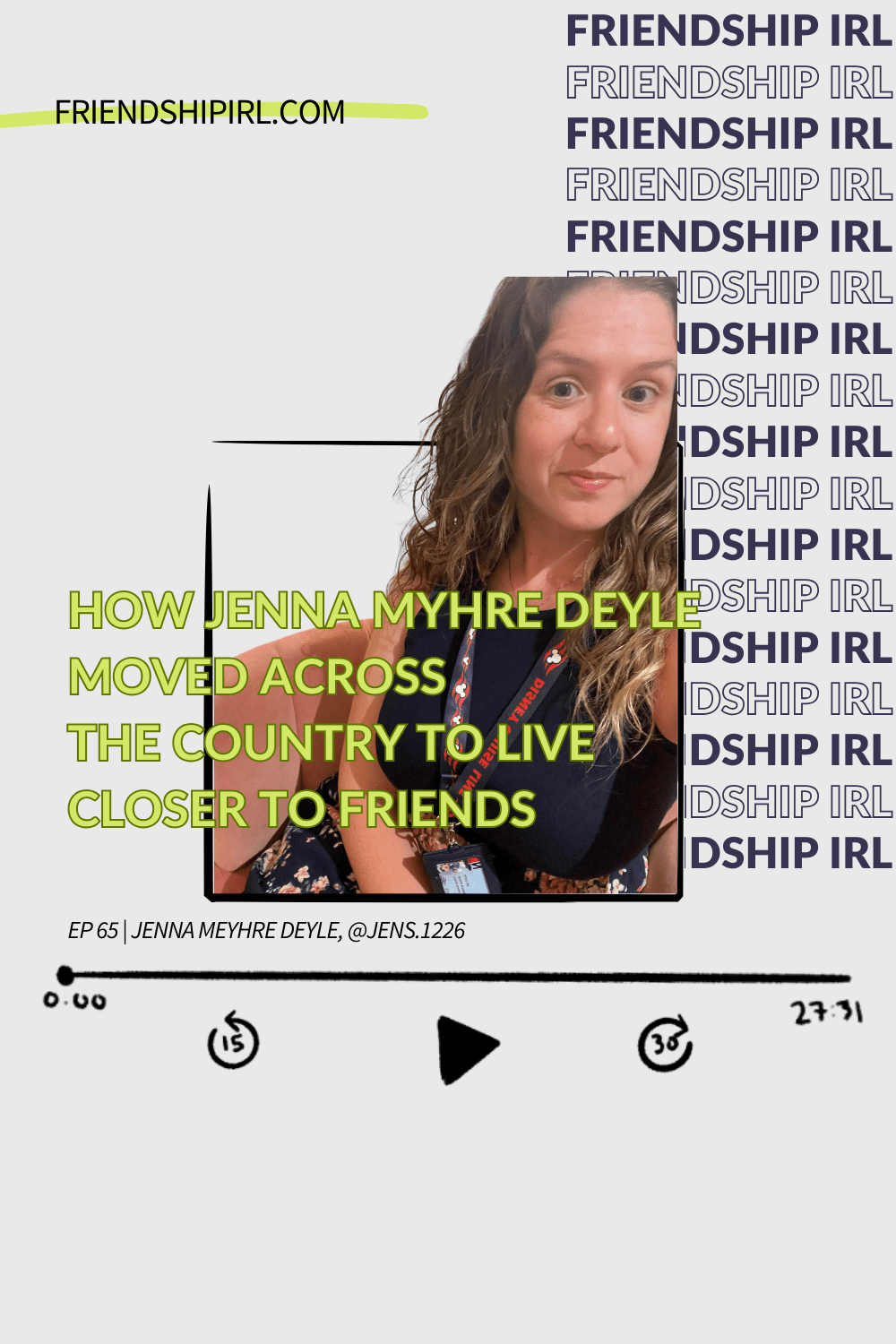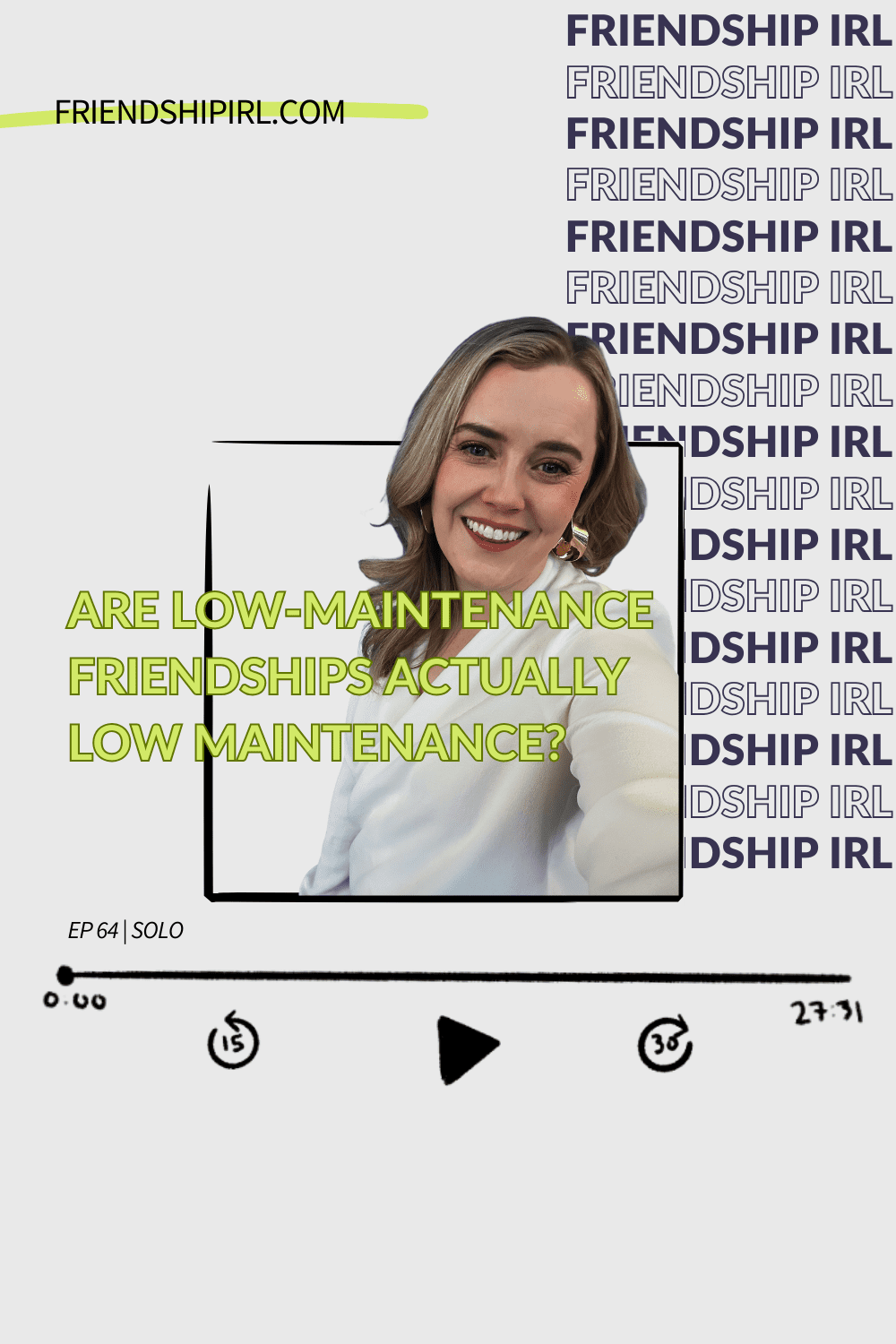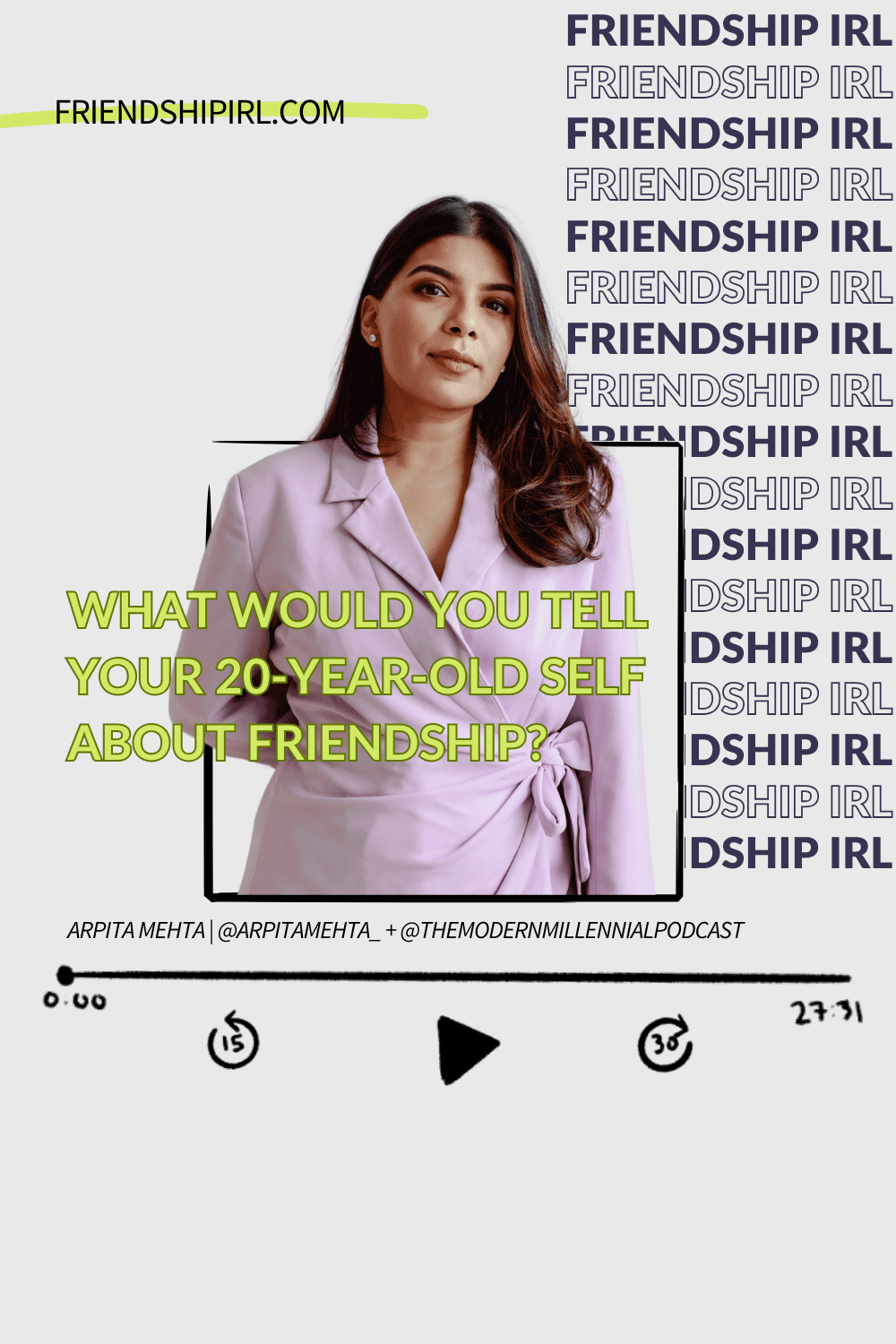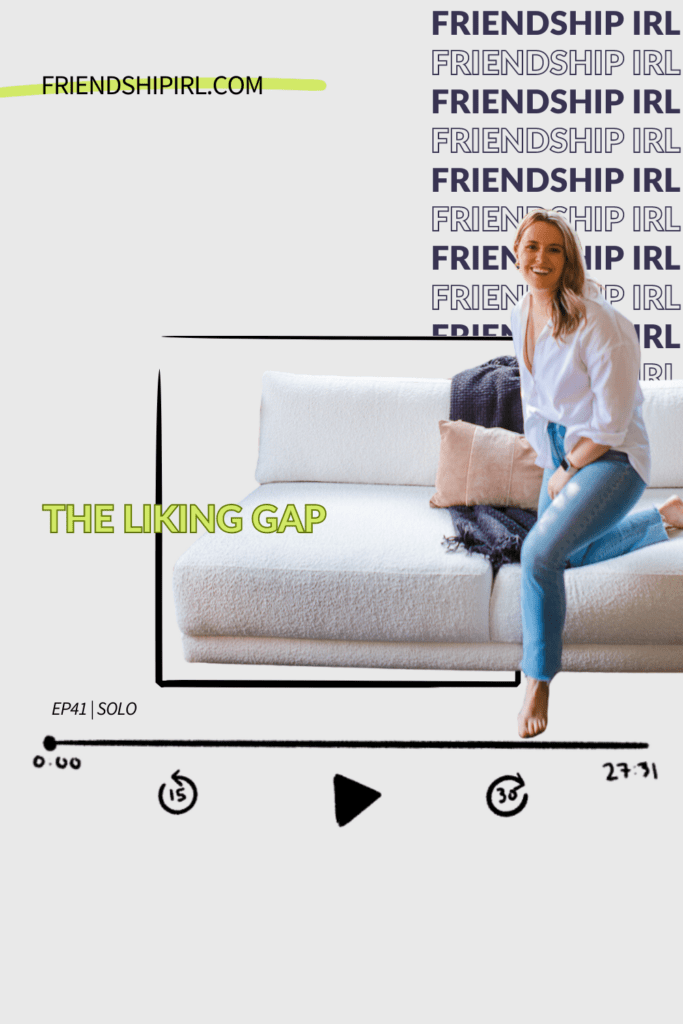
Podcast Description
Have you ever regretted a conversation with a stranger or acquaintance?
To be fair, reflecting on past interactions isn’t a bad thing. Maybe you said something that was slightly offensive. Maybe you said something not knowing a person’s full circumstances and worried you may have triggered them.
What you probably experienced was the Liking Gap. Research shows that people often underestimate how well they’re liked after interactions. More often than not, we are our own hardest critics. Today, we dig into the Liking Gap and discuss how to overcome it.
It might not feel that important having meaningful conversations with strangers or casual acquaintances, but it sets the foundation for other relationships and impacts our feelings of belonging, which is a basic human need for survival.
In this episode you’ll hear about:
- The “Liking Gap” – how it’s measured and why it happens, from being too self-critical to feeling uncertain
- Weak ties – the innate trust we sometimes feel in random strangers or acquaintances – and how this trust has deteriorated over the decades
- How sometimes, we are so focused on wanting to be liked that we miss signals from the other person and are less present – plus, ways to overcome the Liking Gap
- The studies that show people (introverts and extroverts!) feel happier and more connected when they have deep conversations with people they just met
- Questions you can ask to start deeper conversations and techniques for more positive interactions with strangers
Reflection Question:
How often do you interact with strangers or casual acquaintances? If it’s not very often, why not? What’s stopping you?
Notable Quotes from Alex:
“I firmly believe that it is this collective that supports our social wellness overall. We need to go out and interact – with formal communities, our neighbors, our clubs, our community – because although they are simpler interactions, those do contribute to our overall social wellness. Those weak-tie relationships that I mentioned earlier – developing those and finding trust in the people that you exist around day-to-day fosters a sense of belonging.”
“There are numerous studies that show that people feel happier and more connected when they have relatively deep – and we’ll get into that in a second – relatively deep conversations with people they just met. The more shallow the conversations, the more awkward people were. Why is that? If you go a little deep, you start to see that this person is actually a human. They have unique traits and qualities and passions.”
Resources & Links
Check out some studies on The Liking Gap in Psychological Science, the American Psychological Association and Science Magazine.
Leave Alex a voicemail!
Why the Liking Gap is Important:
@itsalexalexander #duet with @justchasingsunsets Put yourself out there! You’ll meet new friends doing the activities you want a friend for. #newfriends #friendshipadvice ♬ Sound by nnalialeddy – Solo Travel 🏔Mental Health ❤️
@itsalexalexander We aren’t taught we can impact our social wellness – friendships, family relationships, community — BUT WE CAN. How do I know? I built my support system from the ground up. It’s possible. #loneliness #socialwellness #makenewfriends #estrangementadultchildren ♬ original sound – Layde_Shy
Until next time…
Take the conversation beyond the new podcast on friendship! Follow Alex on Instagram (@itsalexalexander) or Tiktok (@itsalexalexander), or send her a voice message directly with all your friendship thoughts, problems, and triumphs by heading to AlexAlex.chat and hitting record.
Episode Transcript
Podcast Intro/Outro 00:02
Alrighty, gang. Here’s to nights that turn into mornings and friends that turn in family. Cheers!
Podcast Intro/Outro 00:18
Hello, Hello, and welcome to the Friendship IRL podcast. I’m your host, Alex Alexander. My friends… They would tell you; I like to ask the hard questions. You know who I am in the group? I’m the person that’s saying, “Okay, I’m going to ask this question, but don’t feel like you have to answer it.” And now, I can be that friend for you, too.
Alex Alexander 00:50
Hello, nice to see you. I am excited to talk about today’s topic. Funny enough, because I don’t know, when I started this podcast, I had all these ideas for episodes. Like I still have so many ideas on my potential podcast list. The idea for today’s episode popped in my head, just a few days before I’m recording it. And it’s just like such a small, simple concept. The idea of just being able to do an episode on this, leave you with that, let you linger and think about how you can integrate this in your life or how this is affecting you. And then we can just go on with our day. Like I love that we can cover these big, meaty episodes, but also, sometimes just touch on something simple. So today’s episode is about something called the liking gap. And the reason I was inspired to talk about the liking gap, is because if you go back two and three episodes ago, I offered up a two… not a two parter, because they’re different, but back-to-back episodes on something called third places. Now, if you haven’t listened to those yet, third places are somewhere you go likely in your community, where you see familiar people regularly, and can just kind of like connect with those people around you, opportunities to meet new people, a place where you feel comfortable and you belong, somewhere you can go that’s not your house, or work to do show up when you feel like socializing. So if you haven’t listened to those, go back and do so. I highly recommend it. But in thinking about it, I realized we did this whole thing on third places. And I would guess there are a lot of you who listened and thought, well, that’s great. What you want is for me to go out and interact with people that I don’t really know. And I don’t really want to do that. I don’t like talking to people, I don’t know. It’s scary, overwhelming. I’m introverted, it’s exhausting. Whatever reasons you have, then of course, and thinking about it, I’m like, well, I haven’t really touched much on the liking gap. And if we can look at the liking gap, and realize that our brain is kind of playing tricks on us, then maybe it’ll make it just a little bit easier. Just a little bit easier, doesn’t remember everything, we’ll get there. We’ll talk about that. To go out in the world, and meet new people, and just have simple interactions with the people around us. Now, if you are somebody, which I believe is probably everybody who has gone out in the world, talked to some people and it seemed like a simple enough interaction. It was pleasant, it was fine. They’re not your closest people. So, it didn’t seem bad. But then you leave and doubt creeps in. So, let’s say you were at a neighborhood fundraiser where you’ve kind of seen these people around, but you don’t really know them. And it was fine enough, and then you go home, and suddenly you start thinking to yourself, ahh, I shouldn’t have said that. Or, man, I probably totally weirded them out. They’re never going to want to speak to me again. Maybe you are just now straight up hoping you don’t ever have to see them again. Like you’re not going to go back to that neighborhood meeting. You’re not going to see those people. And if you had to pass them walking down the street, you might even just think now, ughh, I’m gonna keep my eyes down. Or you’re like I have to go back to that group, to that meeting, to that fundraiser. But that’s going to be fun to have to see them next time. If you’ve had this, what I want to tell you is what you’re likely experiencing is something called the liking gap. Now, research shows that people commonly underestimate how well they’re liked after interacting with another person. And this research is pretty recent. There was a study released in 2018 in the psychological science journal, by a group of researchers from the University of Pennsylvania’s Wharton School, where they first introduced this concept of the liking gap. This idea of leaving your interactions and reflecting on how they went, isn’t a bad thing. Like it’s good to just take a moment. Maybe you said something that was slightly offensive, or you didn’t know their full circumstances. So you said something that triggered them. Acknowledging and apologizing, if you see them again, is a form of small intimacy. But quite often, instead, we run in the other direction. And if you did apologize, you would likely, to that other person, become the person who noticed their feelings, even though they didn’t really know you. And that actually is something that is going to make you feel more connected. All I’m trying to say here is it’s not a bad thing to reflect. But the problem with the liking gap is we reflect maybe a little too much, or a little too harshly. The liking gap exists because we can’t talk to people after these simple interactions, and ask them how it went on there. And the way I like to describe the liking app is if you and this person that you met at the coffee shop, had a random interaction with, turned around and said goodbye, walked away, and you got a notification on your phone that said, “Please rate this interaction.” You would have to rate how you think you did. So you’d hit 1 through 10. And maybe your doubt is already creeping in. And you’re thinking, oh, that’s probably… I’m like a six. And then it’ll ask how was your interaction with them? How were they? You’re like, they were nice. They were pleasant. You give them a 9. And a few minutes later, hours later, however, long later, you received their answer.
Alex Alexander 07:49
So remember, you marked yourself in that interaction as a 6. Now when the phone buzzes, and you get their reaction to you, how much they liked interacting with you, and it says a 9, that means that the liking gap would be 3. And if you leave every interaction feeling like it was less enjoyable than it actually was for the other person, it’s unlikely you’re going to keep interacting with people when you move through your day. And it makes sense. But what is happening here? Like, why do we have the liking gap? Because if we’re going to try and move past this, we should maybe have some sense of what is going on here. So the first one is, we are stuck doing our own analysis, right? Because this app that I just suggested, although may be a great idea for somebody, it doesn’t exist. So all we’re left with is our 6. That’s all we know.
Alex Alexander 08:58
We have to do our own analysis. And we have to guess how that interaction was for them, a person we don’t even really know. So we have to run back through the conversation, we have to evaluate it through this lens of everything we said, everything they possibly could have experienced in life, their biases, their situations, all of which we don’t know, and wonder how we were perceived. Another reason that this happens is, like I mentioned, we have no information about them. And I’m gonna layer it even more specific with my language that I’ve developed. We have no emotional intimacy roots with them. Specifically, we really have no roots at all. But our emotional intimacy roots are the little details we know about each other. We don’t have those. We don’t know what their beliefs or their preferences or their life situations are, which makes it hard to interact in a way where we trust it’ll be enjoyable for them. Where we can develop that story root, because that’s what that is really, right? That when they leave, we can say, oh, they like me, that’s a story root, a simple one. They enjoyed talking to me. We don’t have any evidence for that, because we don’t really know what they might like, because we don’t know anything about them. The next reason that the liking gap is happening is more self-critical. We are all our hardest critic, our internal dialogue is intense.
PODCAST EPISODE! Let’s talk about taking control of your social wellness here.
Alex Alexander 10:40
It is incredibly self-critical and often negative. We are our worst judge. So if there was a third party watching this interaction, they also would probably rate us higher. But because we’re left to our own devices, we’re our worst critic. And the final reason the liking gap is happening is that we are uncertain because we’re putting ourselves out there. So we’re uncertain and we’re uncomfortable. It’s uncertain. Like we don’t know, we’re talking to someone new we’ve never talked to. And our body’s natural response is to protect us. So our body’s natural response is to say, we don’t know anything about this person, they could act in any such way, they could perceive us in any such way. Therefore, do whatever possible to get me out of here. That innate trust in the random people, the strangers, the acquaintances around us, is something called weak ties. And I’ve mentioned this before, but there are strong ties, which are closest people, the ones we have a lot of roots with. And then there are weak ties. And weak ties is just kind of this general trust in the people that we exist in the world with. And there are endless studies that show that our trust in weak ties has deteriorated decade over decade. So if we had more trust in our weak ties, we probably wouldn’t feel this intense level of uncertainty, and be so uncomfortable. Instead, we’d have all this evidence that generally the people around us are pretty good people, they enjoy talking to us. When we pass them on the street after our first interaction, they say hi, they look forward to seeing us, they smile. But currently, a lot of us don’t have that. So this combination of being our own worst critic, having to do our own analysis, not really having any information to go off of when we are interacting and generally feeling uncertain and uncomfortable, is creating that liking. And all of this is holding us back from the simple interactions. Like our brain is literally tricking us and making us feel like we aren’t liked. Now, there’s research out there that shows that when we meet new people, we meet strangers, acquaintances, community members, we are so wrapped up in figuring out what we can say to be perceived well. Like we are working so hard in our minds to try and figure out what to say, to get the reaction we want, to be liked, that we actually are that present in the conversation itself. And if you want to hear more about this energy piece, you can go back and listen to episode 15 about staying curious and managing our differences. I talked all about this there. But research shows that part of the reason people underestimate how enjoyable an interaction is, is because you’re so focused on wanting to be liked, that you are trying to figure out what to say. And in doing that, you aren’t really that present in the moment and you miss out on all the signals that the other person is giving that they are enjoying the conversation. That most of your attention goes to looking for their bad reactions that you miss all the good. Because those couldn’t possibly have to do with you even though you are currently where their attention is. And if you’re focused on the bad, if you’re noticing those things, those bad reactions, somebody looking off to the side or curling up their nose, getting a little bit distracted, that could be about you but it’s very likely they could also be because there was a loud noise from a car that passed by outside or they smell something that doesn’t smell quite right coming from the kitchen, they have a slight headache that they’ve been just trying to ignore all day long. And if we’re in our conversations, and all of our energy is on how we can anticipate the right thing to say, to be liked, to control the outcome, and then a little bit of our energy is on just looking for the bad reactions. So we can make up for that, we really don’t have a lot of energy left to look for the good signals. So I would ask you, next time you have one of these interactions, something that might help you with the liking gap, is to try and pay attention to the good signals. I’m going to give you a few more things we can do to help level out the liking gap in our lives. Or to give you the first one, which is to look for the good. Finds signs, symbols, evidence, interactions, reactions, whatever, that you left a positive impression, note those away in your head. The next one is to go back. Go back again. If you convinced yourself that it was a less-than-ideal interaction, go chat with them again. If they enjoyed your interaction, they’re gonna come walk up to you. They’re gonna stick around, they’re gonna say hi. Consider it practice. And the more that you do that, instead of running away after that first interaction, the more evidence you’ll build with yourself, that you’re an enjoyable person to chat with. The third way to help yourself with a liking gap is just to like, except that sometimes the liking gap helps us. It’s not all bad, it keeps us from saying wildly inappropriate things. It just takes its job too far sometimes. So if you’re looking back on an interaction you had, maybe pick the one thing that you don’t want to repeat next time, and let the rest go. Let that be, have a liking gap and your brain protect you and move on. Now, this next one, some of you at first might say, “Really Alex?” But I’m telling you, it’s true. The next thing we can do about the legging gap is to go towards the depth. There are numerous studies that show that people feel happier and more connected when they have relatively deep, we’ll get into that in a second, relatively deep conversations with people they just met. The more shallow the conversations, the more awkward people were. Now, why is that? If you go a little deep, you start to see that this person is actually a human. They have unique traits and qualities and passions. They might be the first person you’ve met that shares a certain interest you have or a life experience. I can think of times. I’m assuming this isn’t just a me experience, where I’ve met some random person and I actually leave. And I will tell Michael or my friends or other people about a random interaction I had. Like, oh my gosh, I met this person and they just got back from hang gliding and wherever. It doesn’t even need to be this big thing. I’m hesitant to give this example and use some big thing. It could literally just be I met someone who has read one book a week for a year.
Alex Alexander 18:53
I have that huge stack of to-be-read books. I would love to read one book a week for a year, something like that. We talk about our simple interaction. So when you are hesitant to give a little depth or share something about you, remember all the times that you have loved when somebody shares something about themselves. We want to know people because when we know them, when we learn something about them, when they’re humanized, it disarms us. It removes some of that uncertainty. We feel a little connected. You develop a few roots. You have some sense of what you might say that would be an enjoyable topic of conversation for them or vice versa. Something that you would say that wouldn’t sit well. And we’ve talked about it before. You know, people want to be invited. So if I’m going to apply that for liking gap, people want to be let in a little bit. So let them in. Decide that you are going to be a person who in the interest of connection shares a little something. That doesn’t need to be sharing your deepest darkest things, or venting or trauma dumping or whatever. It’s just these little things about who you are. And offering those lets people know that you’re just another person. It could be something exciting, it could be a win. But it could also be something boring just to show not every day is the wildest day of the year. Itcould be something honest about a shared life situation. Now, I know there are people out there who are gonna say like, oh, well, I’m an introvert or I don’t like this. Studies show that men and women both get equal enjoyment out of deeper conversations. Extroverts and introverts also get equal enjoyment out of deeper conversations. That people who have deep conversations with these weak ties, these strangers, acquaintances, community members, often feel just as positively as when you have a deep conversation with friends. And if you’re asking, if you’re thinking like, okay, well, what the heck does that even mean? You can offer up something small about yourself, like you read a book a week. You can also be curious and ask them. So when you say, what do you do for work? Which, by the way, if you haven’t heard, I really just like that question. But it’s probably a topic for another day, if you say, what do you do for work? And they answer. You could follow up with, okay, but if you could do anything at all for work, what would you do? And they can choose the depth they want to go. They could be silly. They could be simple. They could really actually have something they want to share. Another question would be, “Oh, like, where are you from? Where do you live in the city?” Followed by, “But if you could move anywhere, where would you move?” When you’re talking about maybe current life circumstances, what they’ve been doing with their time recently. You could follow that up with, “But what do you love doing? Like what are you doing right now that brings you joy?” And they can choose to talk about raising their kids or learning archery, rollerblading, reading a book a week, whatever it is. That is an example of a deeper question that doesn’t have to be the deepest, most intense question. One that is going to put up the panic in that other person that, oh, we’ve gone too far too fast. It’s really just approaching with curiosity, and asking something beyond. How’s the weather? Where do you live? What do you do? Those mundane repetitive life questions. The next one is to trust in the power of positive interactions. So this isn’t just meaningful conversations. I’m talking about doing small things for people. Quite often if you are out and about with a stranger, and you do something as simple as helping them put their groceries in the car or holding the door open, or offering their short $2 in cash when they’re checking out at the coffee shop, saying, “Oh, you know what? I got it. You don’t have to go back out to your car to get it.” Whatever it is. Quite often, we feel like those small things don’t actually matter, that they don’t make an impact. But I want to challenge you, because there are accounts. And by that, I mean social media accounts, websites, YouTube channels, that are full of videos of people that do kind things for others. And those accounts have so many followers. People love watching other people do kind things for each other. We all love doing kind things for each other. We like experiencing kind things from somebody else. They make us emotional. That’s why people share them and cry when they watch them on their social media accounts. So just because it’s not the biggest, wildest, kind interaction, doesn’t mean it’s not valuable. Trust that doing small things has positive effects. So why should we care? Why should we care about the liking gap, about interacting more with the people around us? I have one final example and then I’m just going to chat more about why we should care. This example comes from a 2004 study that was published in Science Magazine. And a researcher noticed that commuting is often associated with the fewest positive emotion more than any other daily activity. That we avoid contact and we walk to our bus or train or whatever with our eyes down, we stare at our phone. We assume collectively that nobody wants to speak to each other. And we’ve even gone so far as to pouring money into making the commute slightly more bearable. Everything from noise-cancelling headphones to more spacious seating on the commutes themselves. All because we believe that nobody wants to interact with the strangers around them. Now this researcher realized that her closest people, they feel free when they’re not having a good day to act grumpy. And that’s fair, we all need safe spaces. But when you’re closest people are forced to interact with a stranger or an acquaintance, they perk up a little bit. They want to have a pleasant interaction. And in doing that, it would erase his bad mood for a moment. That when you’re interacting with these people, you are more cheerful. I know some people are gonna say, well, that’s putting on a mask, or that’s pretending. Now maybe it is. Or maybe it’s just that by interacting with a stranger, by being out in the world, we’re forced to remember that other people are having other feelings, too. I know I feel this way. Sometimes, when I get really in my head, about anything, stress, work, my past, whatever, bad therapy session, sometimes just going out into the world and remembering that like other people are out there and I don’t know how they’re feeling today. But there are people who feel good, there are other people who feel bad, I’m not alone. So maybe it is that we want to put on a good face. Or maybe it’s just that for a moment, we’re forced to tap into this collective instead of being in our own heads. Many of us assume that our well-being depends on our strong ties, on our closest people. And that these minor characters in our lives have no impact. But what has been found is that our interactions with both our weak ties and our strong ties impact our overall happiness. That on days where we have a mix of interactions are the days where we feel happiest, which is all to say that on the daily activity that we all assume is the worst commuting. When people get out of their own way, when they stop assuming collectively this collective liking gap, that their interactions might be taken positively. They get to a point where this positively impacts their own happiness.
PODCAST EPISODE! What is a Friend? and the 4 Types of Friends We All Have. Listen here.
Alex Alexander 26:46
I’m going to close out this episode, but just talking about why care? Why do we care? I’ve spent a lot of time talking about talking to strangers and acquaintances and some of you are probably squirming, I get it. But as I’ve mentioned before, so much conversation that’s out there is talking about just family or romantic partners, or friends. Sometimes community, that is very few and far between. But I firmly believe that it is this collective that we’ll… I have, that supports our social wellness overall, that we need to go out and interact with formal communities, our neighbors, our clubs, our community. Because although they are simpler interactions, those do contribute to our overall social wellness. Those weak tie relationships that I mentioned earlier, developing those, finding trust in the people that you exist around day to day, those strangers, it fosters a sense of belonging, which is very important. Belonging is a basic human need. We need it for survival. Because if we feel like we belong, we trust that in a bad situation, say if I got mugged, somebody took my purse, that the people around me would help me. Or maybe they wouldn’t mug me in the first place. But we walk through the world less apprehensive. Belonging also anchors us. You feel like you are meant to be there. We have less anxiety about, I don’t know if I should be here, when we feel like we belong. And belonging also opens us up to so many possible connections, kind of fills that friendship funnel. We see the potential of people we could interact with, or the variety of people that exist out there. If you’ve built yourself this close friend group that is very similar, having these simple interactions makes you realize that there are more people out in the world, there’s more ways to live, there’s more things to do. There are more people who would help you. There are also people who share may be very niche interests or passions you have or goals. There are people out there who are examples that it can be done. So belonging helps us move through our day-to-day. But the thing about belonging is that it’s a muscle. We are all individually responsible for building our muscle. We lower our own threat levels, our own discomfort by putting ourselves out there, just like in any other area of life. I’ve mentioned before my weightlifting journey, I’m less terrified to go to the gym and pick up a kettlebell. Because I am building that belief that I belong in the gym, that I know how to lift a weight. I have to do that. Nobody can do that for me. And building your own sense of belonging and your communities is no different. You have to show up, you have to put in the repetition to start to wear down your brain and that liking gap. You have to build enough evidence to trust that you’re an enjoyable person to interact with most of the time. And if they don’t like interacting with you, that’s okay. Because there are so many people out there that you both enjoy interacting with each other, that you’re not worried about one person who doesn’t. Because you have 100 pieces of evidence showing that the majority of people do enjoy interacting with you. So I guess that’s how I’m going to end this. I really think that we can’t just keep talking about these silos of relationships. And we need to talk about it all. And discussing the acquaintances and the formal community is so important. Because I think it really anchors us. It sets this foundation for a lot of our other relationships. And a lot of societal messages say the opposite. They say that our romantic relationships are familiar relationships. Maybe our friendships are that foundation. And they might be the first people you call, but they aren’t always the people you’re spending the most time with day to day, when you’re out in the world, moving through your day, going to the grocery store, picking up kids from school, going to your job, seeking out something new in your life. So, we’re spending a lot of time out there in the world with casual acquaintances, just believing that these relationships don’t seem to matter, even though they are a huge piece of our life. I really hope that this episode inspired you to think a little bit differently about those relationships, but also to just take stock of yourself, how you’re experiencing the liking gap, and how you might start to chip away at that feeling, that doubt that you have because the only thing that’s going to wear that down is starting to shift how you go into those interactions.
WANT DEEPER FRIENDSHIPS?
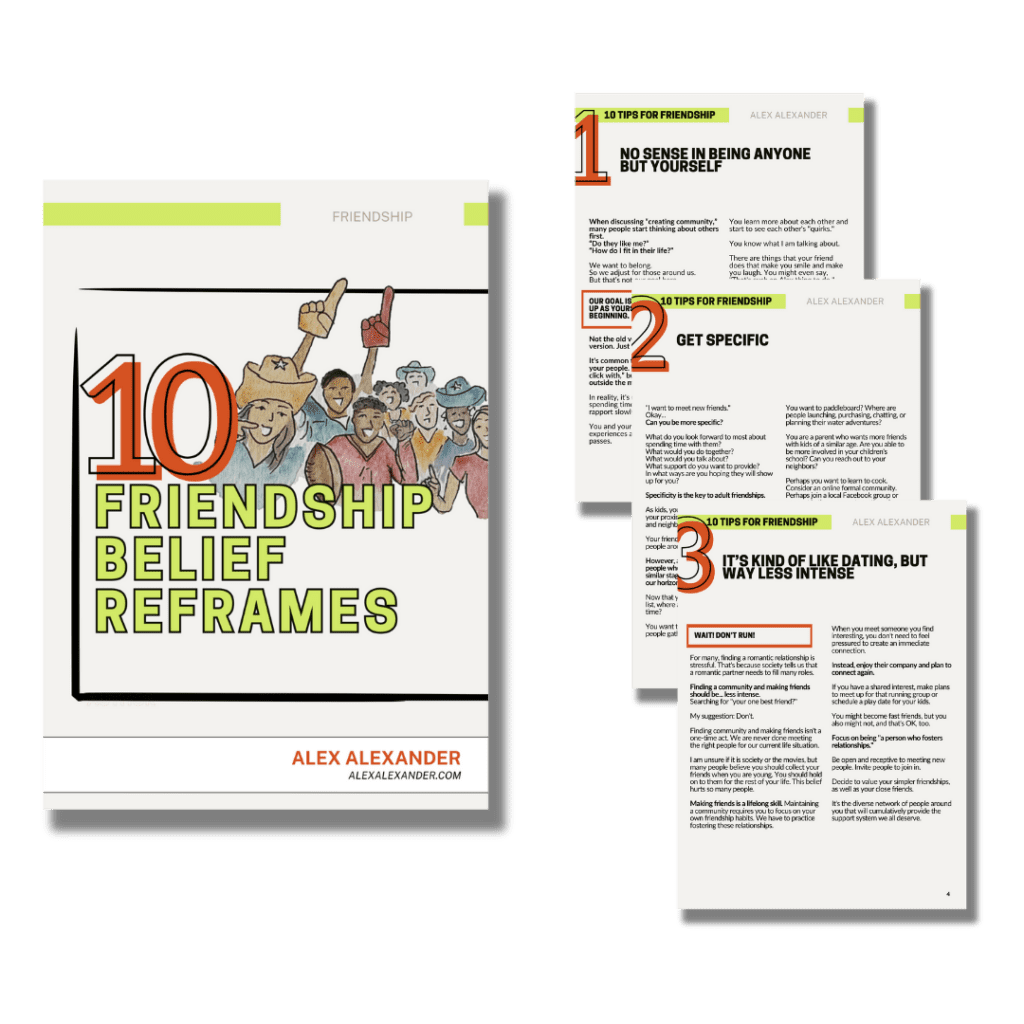
I AM GIVING AWAY MY SECRETS TO BETTER FRIENDSHIPS.
Reinvigorate your friendships and learn how to create stronger ones by incorporating my Top Friendship Reframes into your life. BONUS! An exclusive look at my upcoming book. Want to bring more purpose and value to the relationships that matter to you? Download the guide now.
Podcast Intro/Outro 58:58
Thank you for listening to this episode of Friendship IRL. I am so honored to have these conversations with you. But don’t let the chat die here. Send me a voice message. I created a special website just to chat with you. You can find it at alexalex.chat. You can also find me on Instagram. My handle, @itsalexalexander. Or go ahead and leave a review wherever you prefer to listen to podcasts. Now if you want to take this conversation a step further, send this episode to a friend. Tell them you found it interesting. And use what we just talked about as a conversation starter the next time you and your friend hang out. No need for a teary Goodbye. I’ll be back with a new episode next week.

